QuestionDear Expert Chrys,
I've been raising and hand feeding English Budgies for about 10 years. I would like to put an end to chronic problems with systemic yeast infections during the breeding season.
Dr. Gestier of Vetafarm recommends using Aviclens (chlorhexidine) in the drinking water regularly to help control this. I was doing this, along with using probiotics and organic apple cider vinegar.
When a pair of hand feeders began to have smelly poop, I sought out a new vet, having moved to a new area. She would not write an Rx for fluconizole (Diflucan) "until she knew what they had." I wasn't able to get the Rx from her until 7 weeks later (with no refill), and it is still not known "what they had."
But she told me I should NOT use chlorhexidine in the drinking water, nor to soak/sprout grain with treated water, because it would also kill the good bacteria.
Between this initial "advice" and finally getting the Diflucan Rx, I took them to a 2nd vet (that the 1st recommended as being an avian vet), and I also submitted a different bird to the University Avian Research extension for necropsy. All of the advice and "diagnoses" was at cross-purposes and contradictory.
Had I not followed my own instinct, obtained Megabac-S from Vetafarm, and a Diflucan refilable Rx from my former avian vet 90 miles away, the birds almost certainly would have died.
I am particularly confused about the rationale for using or not using Aviclens (chlorhexidine) routinely as a preventative for both Avian Gastric Yeast (aka Megabacteria)and Candida yeast.
I would appreciate hearing your position on using this, as well as any other means of boosting immune response and strong gut flora to discourage Candida. If using probiotics, does it matter what brand or formula?
There have also been a lot of addled eggs and dead-in-shell chicks. I've been reading about chlamydia and wondering if I should screen for this?
Most of the deaths that I have had necropsied have turned out to be cancer. I am also now doing my own visual necropsies. I have recently had a microscope delivered that I haven't yet had time to set up. I'm planning to screen for Megabacteria, trichimonaisis, and Candida. Someone on the Finch list wrote about doing this with success and put up some impressive images at only 100X and 400X.
Thank you for listening,
Sincerely,
Cheryl Russell
Chez Wings Aviary
(~80 English Budgerigars)
AnswerHi, Cheryl. Thanks for posting.
You're talking a bit over my head I'm afraid with some of your post, but I'll provide my opinion for what it's worth to you.
I do not recommend ever putting anything in the drinker/drinking water, except for the occasional apple cider vinegar. And then the ACV only for a few days at a time, followed up by a few days of lactobacillus acidophilus, or other quality gut bacteria. Yes, there is a difference between brands of good gut flora supplements. You have to try different brands to see which works best for your birds. I alternate different types, which seems to work best when I have the need to have to use these products (which is usually only after medicating my parrots). When you place anything in the water, this makes the water a breeding medium for any type of bacteria, etc. The bird's left over feed from it's beak is enough to contaminate their water and make for an ill bird.
The problem with using any type of medication regularly (such as a preventative) comes when the "bad guys" get immune to the medication you use...this happens quite frequently and renders your medical efforts fruitless (not to mention the toll it takes on your birds). I only medicate when I have an ill bird, and I only medicate that particular bird. I never medicate the entire flock, except when I find that more than 2-3 birds are suffering from the same symptoms/illness and they are housed in the same aviary/cage.
My first thought when I read your post was there is something causing the problem. You are medicating symptoms and not curing the basic problem. What is causing the megabacteria/yeast problems to occur in the first place? This is what you need to get to the bottom of. Are you sure you are dealing with megabacteria and not aflotoxins? Aflotoxins can be found in seed products you feed to your budgies. Try eliminating the seed and see what happens or try changing brands of seed (some brands are better quality than others). Do you take your birds back to the avian vet after their medication period is over for testing to ensure they are well? Your birds might be passing this problem back and forth. Your goal should be to eliminate the basic problem, not just medicate your birds. Do you disinfect their drinkers and feed dishes? Have you disinfected all the cages and nestboxes? Have the avian vets run cloacol and cloanal tests, as well as perhaps blood tests to see what is going on with your budgies? I have a problem with a bird vet saying they didn't know what was wrong with your birds. If they performed any type of testing, why don't they know? And why are meds being prescribed if they don't know what is wrong? Using probiotics, immune system enhancers, etc., is good, but won't get rid of the basic problem. You need to eliminate the source. Many times, hatchlings become ill from ill parents feeding them and/or hatchlings (and eggs) becoming infected in the nestbox from the parents.
I don't have many medical problems at all with my birds. I feed them well using good, healthy foods, a variety of foods, pelleted feed, and staying away from seed as much as possible. I supplement, mainly during the winter months, with echinachea, green algae, vitamin C, garlic, wheat germ, etc. (human grade immune system enhancers). I use different types of probiotics after the need to medicate, which is rare. My belief is to keep healthy via good food, exercise, etc., and medicate only when essential.
I've gone the microscope route and use mine when necessary. Unless you have a lot of experience identifying different types of "bugs," I haven't found using a microscope to be very helpful. The more samples you have to look at and identify, the better you get. Photos taken by others can be helpful, but far from exact. If you treat your budgies based on what you (think) you've found, you could actually be causing more harm than good. You have to also know how to take a good sample, what solution to mix your sample with, etc. (lots to learn to be effective).
Sounds to me like you need to completely tear down your setup and disinfect everything, perhaps separating your birds to find who is shedding/spreading the illness. Take a good look at how you feed and what you feed. Overbreeding birds can often cause many problems (2-3 clutches maximum per pair per year). Prevention is good, but prevent using healthy means once your birds are healthy, not means (medicine) that can make matters worse.
So many things can go wrong with a developing embryo. You can try screening for lots of things, but sounds to me like whatever bacteria/yeast your birds have is being passed to the eggs. This is why I think a good disinfection is necessary in your situation. Bacteria can "hide" in the cracks and crannies of nestboxes and invade every clutch of eggs your budgies lay. Bacteria can be spread via the parents feet, as well as your hands, etc. Some bacteria can even be airborne...do you use any type of air purifier/cleaner in your budgie room(s)? These are all things you need to consider in helping to get your budgies healthy again and keep them healthy.
Chrys

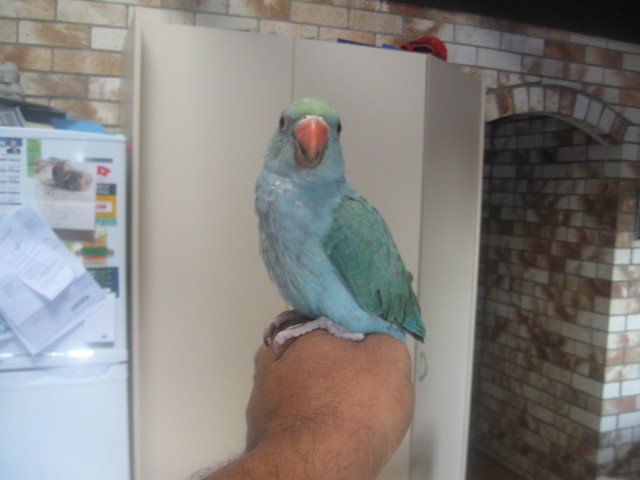 Color of my indian ringneck
Question
Boots
I have an eleven week old male ringneck
Color of my indian ringneck
Question
Boots
I have an eleven week old male ringneck
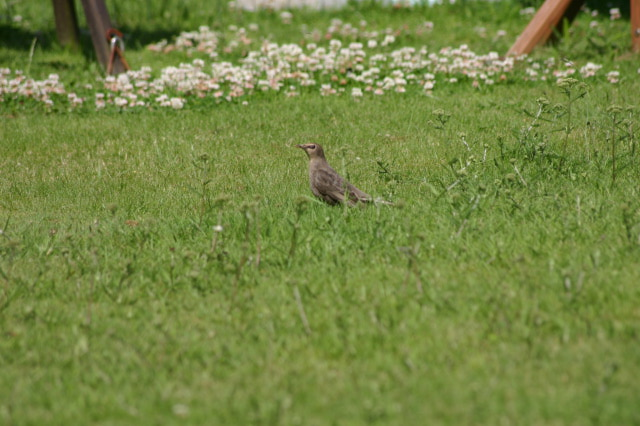 Identification of a bird
Question
Bird name
Please can you advise what th
Identification of a bird
Question
Bird name
Please can you advise what th
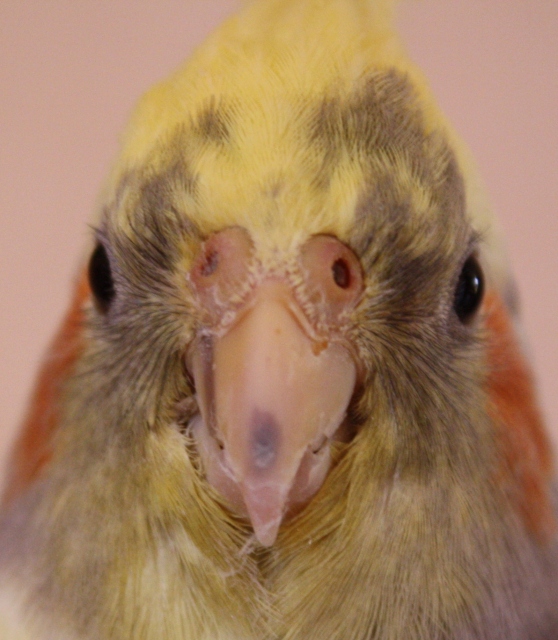 Bruise-like discoloration of beak (Cockatiel)
QuestionSasha
QUESTION: Our Cockatiel has develo
Bruise-like discoloration of beak (Cockatiel)
QuestionSasha
QUESTION: Our Cockatiel has develo
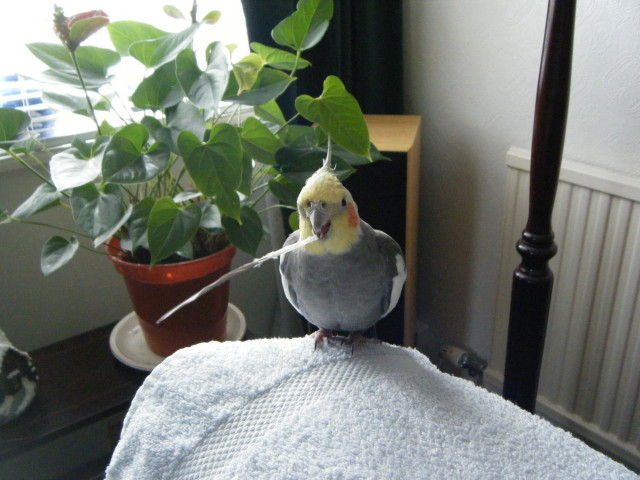 boris the cockatiel
Question
boris
Hello , I have a male cockatiel called b
boris the cockatiel
Question
boris
Hello , I have a male cockatiel called b
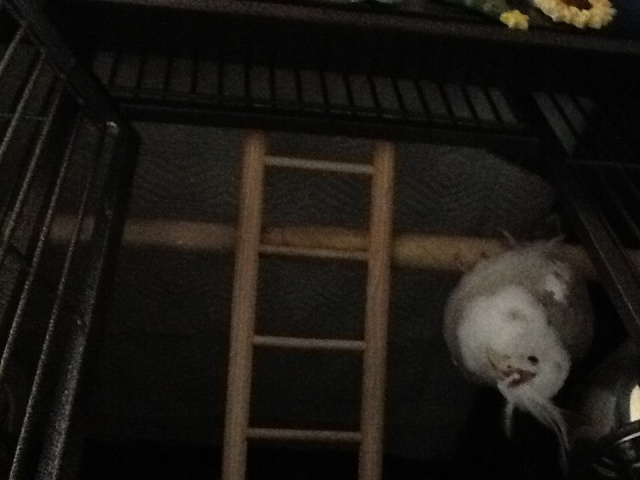 White faced cockatiel injury
Question
cockatiel injury
My 8 year old cockatie
White faced cockatiel injury
Question
cockatiel injury
My 8 year old cockatie